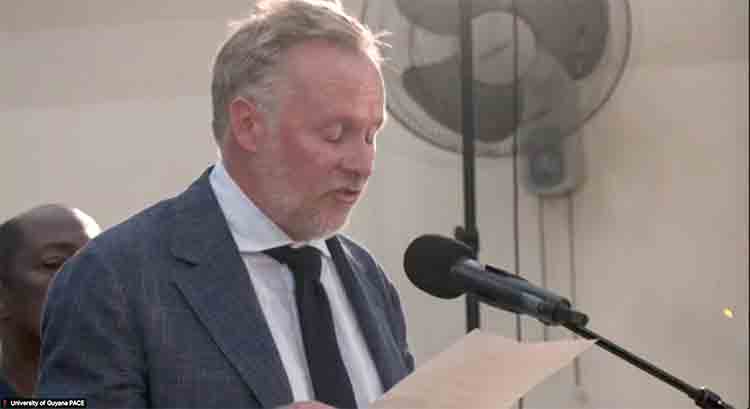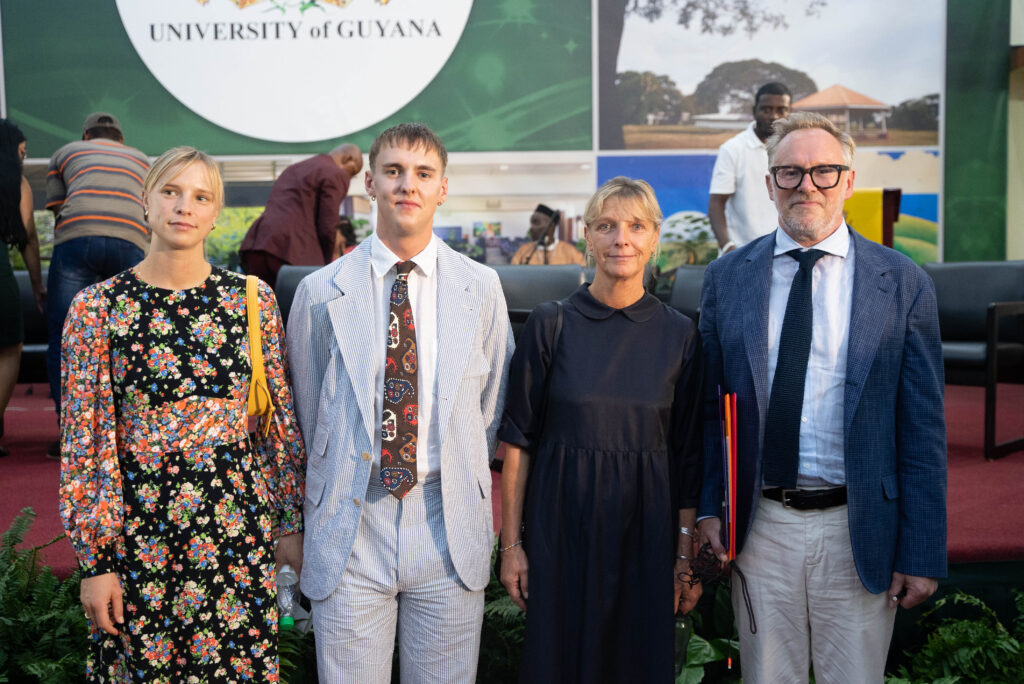GUYANA | The Gladstone family presents an opportunity to right past and present wrongs

GEORGETOWN, Guyana, September 8, 2023 - As we intensify the discussions relating to the Gladstones visit to Guyana to offer an apology for their ancestor, Sir John Gladstone’s role in slavery, one needs to take into consideration a number of factors.

Conscious that they, along with other descendants of enslavers and some British parliamentarians, have called on British Prime Minister Rishi Sunak to make an apology on behalf of Britain and its citizens and he has dismissed the appeal, where individuals are prepared to part company with their governments in doing what is right, they need to be embraced and encouraged.
This family has formed alliances with others to pursue the issue of righting the wrongs outside of the British government.
The issue of slavery, apology and reparation, in this specific case, applies to the African community and it is for this reason the community’s involvement in developing a consensual programme is necessary.
The Government of Guyana cannot lead the discussions but could play a role of facilitating the discussions, by making available the resources of the state, and this must be made very clear to all.
The visit of the Gladstones should be embraced and the positives that emerged from their plans can be incorporated into the African programme, but along the way the Africans must lead the charge in pursuit of reparations for the community.
It should also not escape attention that this issue is being confronted in the decade dedicated to Africans by the United Nations (UN) under the theme “People of African descent: recognition, justice and development.”
One of the UN’s objectives for this decade is: “To strengthen national, regional and international action and cooperation in relation to the full enjoyment of economic, social, cultural, civil and political rights by people of African descent and their full and equal participation in all aspects of society;”
The issue of continuous transgressions that are committed against the African community by the Ali/Jagdeo regime cannot be allowed to go unnoticed. As starters, Africans would be in order to demand from the regime every iota of the Constitution of Guyana be respected.
The non-respect for the supreme instrument puts at greater risk the rights and well-being of this group to be treated with respect and dignity and participate in the patrimony of this nation as equals and not lesser than.

For instance, oil and gas, which is the most buoyant sector of the national economy, sees the exclusion of Africans from entrepreneurial opportunities and in some instances job opportunities even though they are qualified.
We don’t need any academic paper to tell us what we see daily, particularly in government stories, accompanied by photos, of who are the principal beneficiaries of state contracts, have access to state resources and get the support to participate in the sector. More than 95% of the resources are out of the reach of Africans.
It will not be surprising, as we continue exploration for oil, offshore and land, that a sizable portion found on land will be given to non-African group(s) without even an opening bidding process that could allow the community to qualify.
Africans need a system put in place that speaks to Affirmative Action.
Those who were involved in slavery (the descendants of the enslavers and enslaved), along with genuine sympathizers, desirous of moving the process forward, at the local level, should form a team to develop programmes toward the realisation of set goals.
The Gladstones have opened our eyes further, that even today there are governments that do not value Africans as equals, consider chattel slavery abominable, deserving of an apology and efforts made at reparations.
They are also showing us that society does not necessarily need governments to be agents of change when the people can, and that descendants of enslavers can acknowledge errors of the past and actively collaborate with the descendants of the enslaved and act in conformity with Article 1 of the United Nations Human Rights Declarations that: “All human beings are born free and equal in dignity and rights.
They are endowed with reason and conscience and should act towards one another in a spirit of brotherhood.”
-30-
